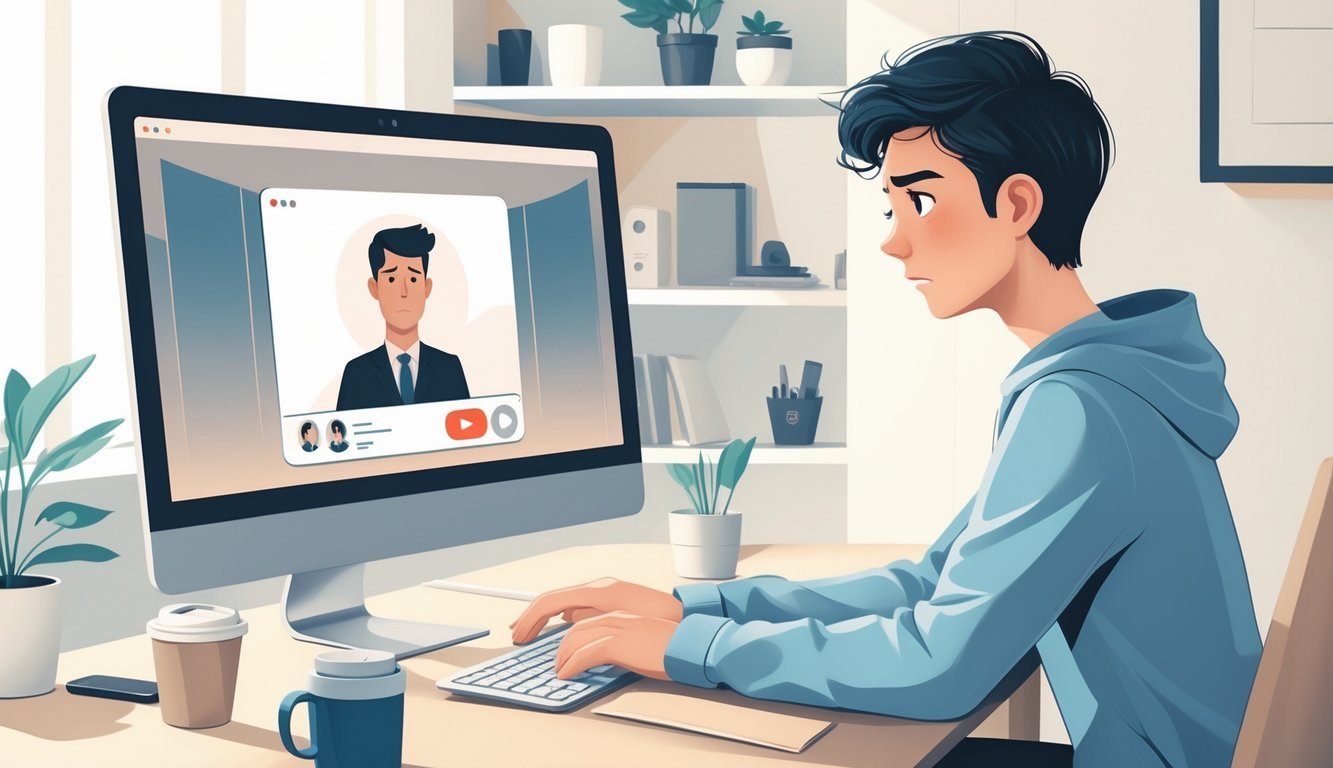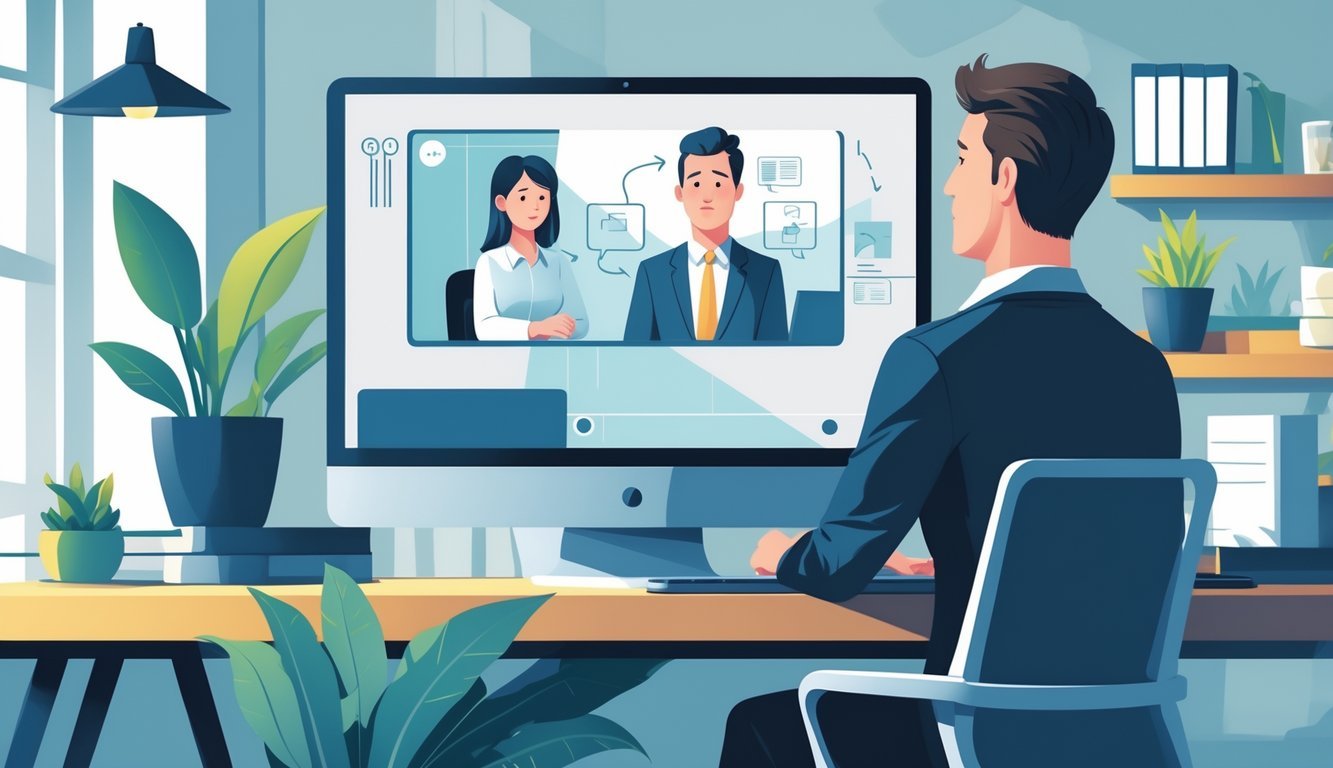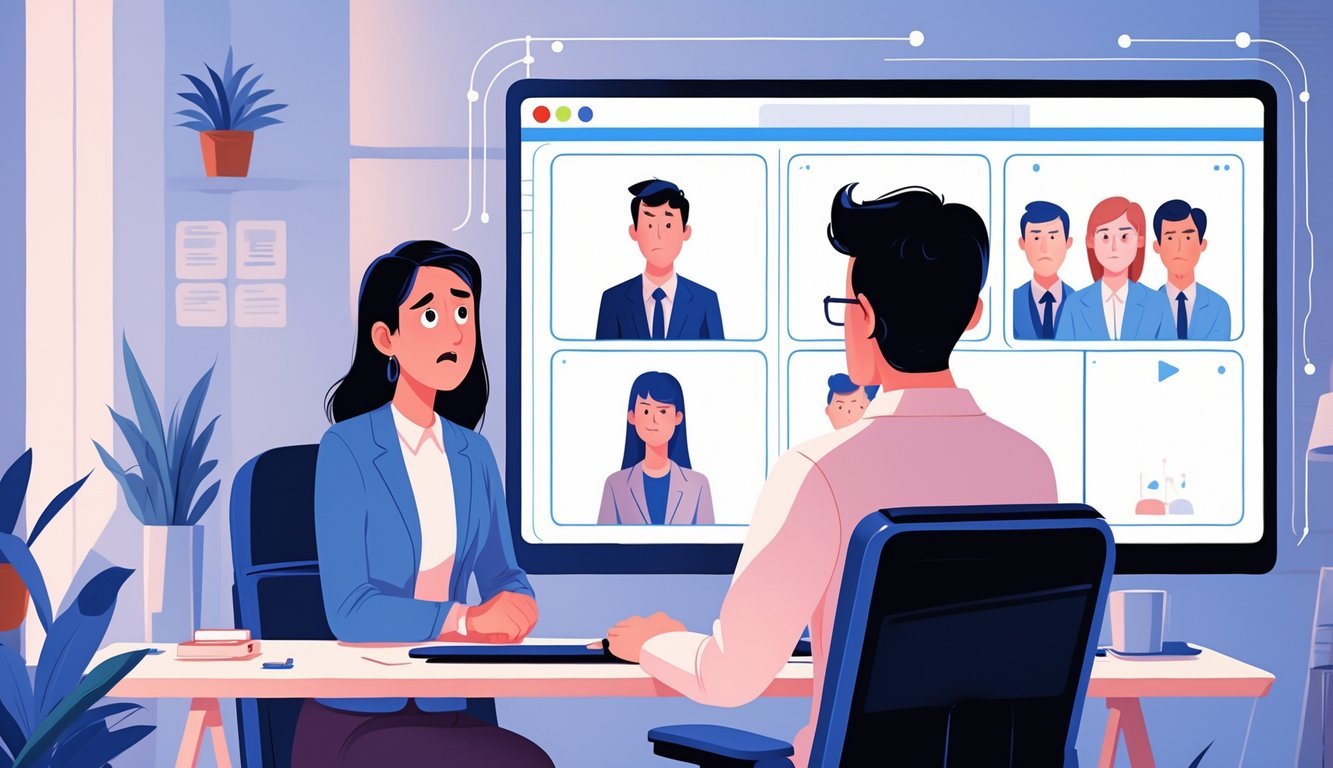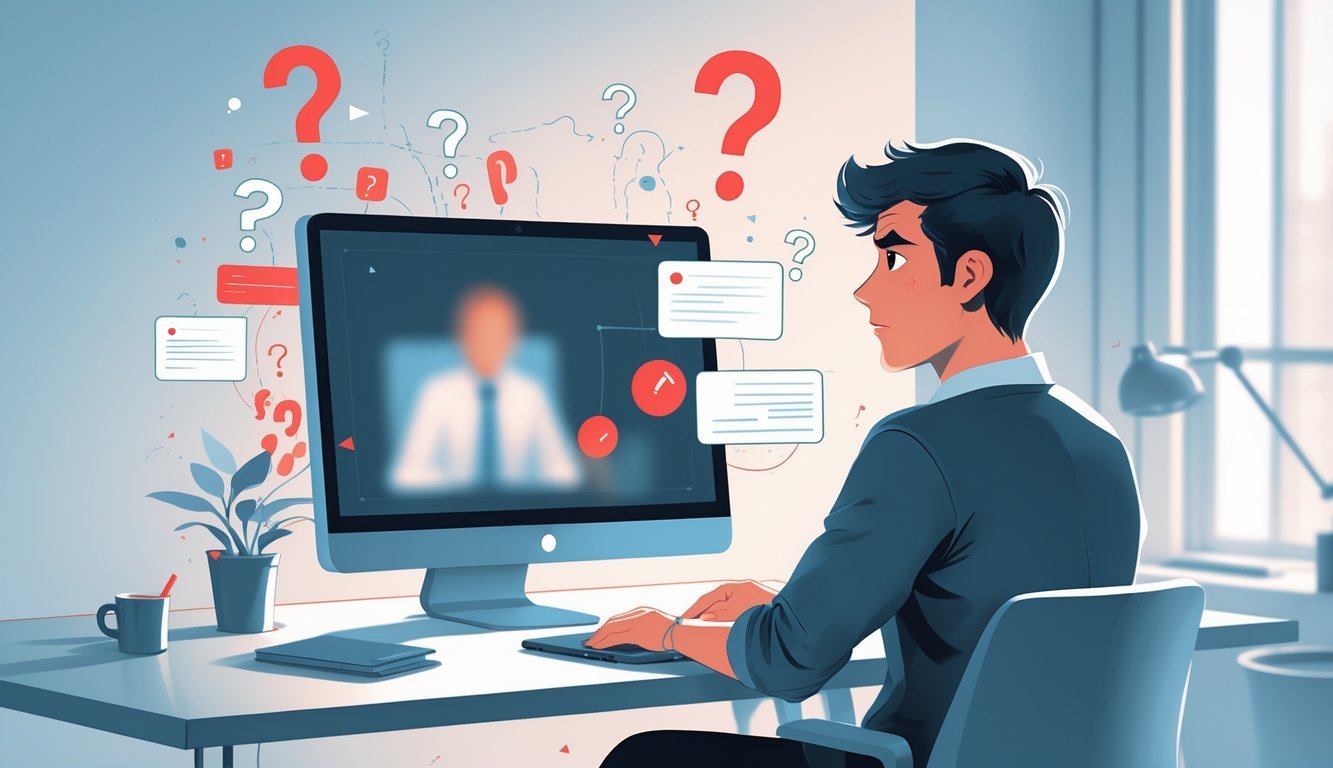PsychNewsDaily Publishers
100 Summit Drive
Burlington, MA, 01803
Telephone: (320) 349-2484
PsychNewsDaily Publishers
100 Summit Drive
Burlington, MA, 01803
Telephone: (320) 349-2484
Online job interviews typically result in lower evaluation scores due to challenges in communication, body language, and connection, necessitating unique preparation for success.

A new study says online job interviews might actually lower your chances of landing the job. When interviewers see you on Skype or Zoom instead of in person, they tend to give you lower scores.
Your skills and personality just don’t come across as well through a screen.
If you want to improve your odds, remember: online interviews aren’t the same as meeting face-to-face, and you’ll probably have to work harder to make a strong impression. Video interviews are everywhere now, but they come with new challenges that can affect how people judge you.
Knowing these hurdles can help you get ready and dodge common mistakes. It might give you a leg up in a really competitive job market.

Online job interviews can affect your chances of getting hired in a few different ways. These effects come from how researchers studied the process, how your success rate changes, and how hiring trends have shifted.
Researchers asked thousands of job seekers about their experiences with online interviews. Most compared video interviews with in-person ones.
They focused on things like communication, body language, and how well candidates performed. They gathered data from adults applying for jobs, noting how missing eye contact and nonverbal cues could sway an employer’s opinion.
Some job seekers shared their own stories about the difficulties of remote interviews.
When you see how they did the research, it’s easier to understand why online interviews can be less effective for certain people.
Online interviews usually lower your odds of impressing an employer. Without being in the same room, you lose the chance to build connection through body language or subtle cues.
Hiring managers have a harder time getting a real sense of who you are. Seventy percent of job seekers still say they’d rather interview in person.
Video interviews can be stressful too—tech problems or the impersonal vibe don’t help. That might mean fewer callbacks or offers, especially for jobs that need strong people skills.
Even with these hurdles, tons of companies now lean on remote hiring and video interviews. This saves time and money.
Some places use several online steps, like assessments or even robot interviews. If you’re job hunting, get ready for a digital-heavy process.
Online interviews are the new normal, even if they feel a bit cold.
Tips to handle this trend:
Getting prepared can help you come across better—even through a screen.

Interviewing online brings its own set of challenges. You have to think about how you communicate, how confident you seem, and how video interviews just aren’t the same as in-person meetings.
Knowing what can trip you up helps you get ready.
Virtual interviews just aren’t as smooth as face-to-face ones. You miss out on non-verbal cues—gestures, posture, all that stuff.
It’s easy for things to get lost in translation. Tech issues don’t help either.
A bad internet connection, sound delays, or frozen video can totally throw off your rhythm. Your answers might seem less clear, even if you know your stuff.
You’ll need strong communication skills to make up for these gaps. Speak clearly and pause so the interviewer can keep up.
Simple language works better, and it’s smart to double-check that your points got across.
Showing confidence on video isn’t always easy. Without being there in person, you have to rely on your tone of voice and whatever the camera picks up.
Some employers say a messy background or bad lighting can make you look less professional. So, set up your space and dress like you would for a real interview.
You want to look confident but not stiff. Smile, nod, and show you’re listening.
People also judge your confidence by how well you handle the tech. If you fumble with the setup, it can hurt your image.
Video interviews just feel different. In-person, you get to build a connection with small things like a handshake or steady eye contact.
Those moments are tough to recreate online. Video interviews often feel more formal, a bit stiff, and less personal.
It’s harder to share your work history or connect with the company culture in that setting. Sometimes it’s just tricky to show real enthusiasm or adapt to the conversation.
On the bright side, video interviews save you the commute and let you stay in your own space. But since you’re not there physically, you have to work extra hard to make a good impression—and you usually have less time to do it.

If you want to do well in online interviews, focus on clear communication, good body language, and making sure your tech works. Stay away from certain topics and habits that can hurt your chances.
Handling tech problems calmly is also a big plus.
Dress professionally and pick a quiet, well-lit spot. Try to look at the camera, not the screen, to keep eye contact.
Speak clearly and let your enthusiasm show through your voice.
Don’t bring up salary or benefits right away. Stay positive—don’t badmouth past employers or coworkers.
Try not to look distracted or unprepared.
Definitely. Tech problems like spotty internet or bad audio can pop up. It’s harder to read the interviewer’s body language.
You might also feel less connected or engaged.
They want to see you’re interested and paying attention. Good questions show you care.
Clear, polite communication and respect go a long way.
Test your internet, camera, and mic before the call. Keep a phone handy just in case.
Close any apps that could slow down your connection.
Take your time when you speak. Pause now and then so the interviewer can jump in.
Keep your answers simple and direct. Show you’re engaged—give a nod or a quick smile.